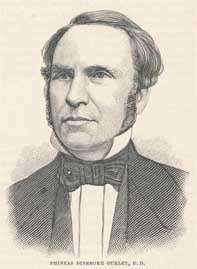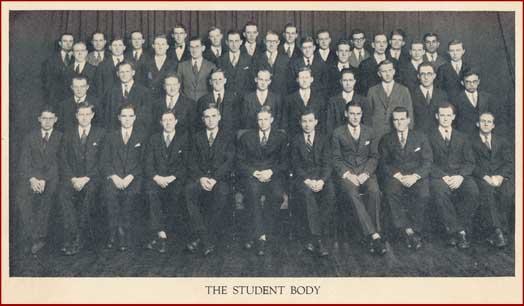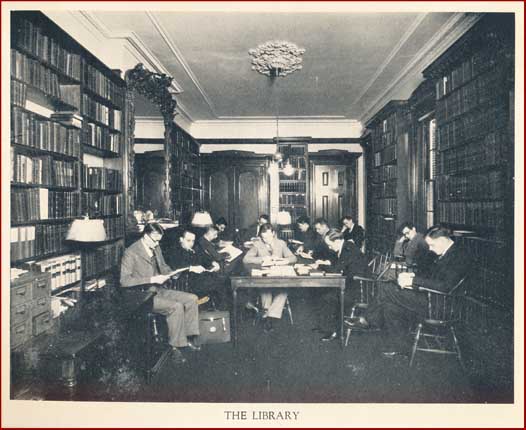A Funeral in the White House
 The memorial service in the East Room of the White House began with the solemn reading of Holy Scripture by the Presbyterian clergyman. Dr. Phineas Gurley, pastor of the New York Avenue Presbyterian Church in Washington, D.C. obviously wished to set the tone of God’s place in this whole tragedy. What was that tragedy which prompted their gathering onApril 19, 1865? Nothing less than the assassination of the President of the United States, Abraham Lincoln.
The memorial service in the East Room of the White House began with the solemn reading of Holy Scripture by the Presbyterian clergyman. Dr. Phineas Gurley, pastor of the New York Avenue Presbyterian Church in Washington, D.C. obviously wished to set the tone of God’s place in this whole tragedy. What was that tragedy which prompted their gathering onApril 19, 1865? Nothing less than the assassination of the President of the United States, Abraham Lincoln.
Dr. Gurley was the pastor of the church where the President and his family attended while they lived in Washington, D.C. He became a close friend as well as a spiritual advisor. He had often been a counselor to the President in the dark days of the Civil War. Moreover, when the Lincoln’s son Willie died in 1862, it was Dr. Gurley who ministered to the family and he delivered the funeral sermon for their son. Now in 1865, he was again present at the death-bed, giving counsel to Mrs. Lincoln. And again he was asked by Mrs. Lincoln to give yet another funeral sermon, this time for her deceased husband.
Readers can “google” the entire sermon on-line. And I urge everyone who reads this devotional to read that sermon. You will find it a wealth of comfort for any kind of “dark providence” in your life.
Dr. Gurley, who was a graduate of Princeton Theological Seminary and a committed member of Old School Presbyterianism, says right at the beginning of the memorial service that “we recognize and adore the sovereignty of God.” He quoted the old hymn’s words “Blind unbelief is prone to err and scan his work in vain; God is his own interpreter. And He will make it plain.” To all his quotations of Scripture, like Psalm 97:2 “Clouds and darkness are round him: righteousness and judgment are the habitation of his throne.” and Job 11:7, 8 “Canst thou by searching find out God? canst thou find out the Almighty to perfection? It is as high as heaven; what canst thou do? deeper than hell; what canst thou know?” — to all of these high and holy theological points, Gurley answers that his intent at that memorial service should be to ”bow before His infinite mystery.” Indeed all the grieving citizens should respond to his words to “bow, weep, and worship.”
And then, Dr. Gurley spoke of the character of the president, and how often he told those of his family, his cabinet, and any other people he would meet, to have faith in God. That was the only response they should give in that hour of sadness. To Dr. Gurley, there was no doubt in the minister’s mind that Abraham Lincoln was a firm believer in the Lord Jesus and thus a Christian.
It would be doubtful today that even such a religious service complete with a Biblical message could take place today in the White House. But it did back then, and it was a message which could only be characterized as the Reformed faith in the Sovereignty of God.
The Presbyterian minister traveled on the funeral train to Springfield, Illinois, and gave the final prayer at the service beside the grave site. He stayed at the church until his death of 1868. While he was in the pulpit, traditional Calvinism was the underpinning of the message of the church in the pulpit.
Words to Live By: God’s sovereignty is never a mere doctrinal truth for believers. It is also a tremendous comfort for Christians when unexplained things occur in our lives. If you haven’t done so already, commit to memory some texts like Romans 8:28 or Daniel 4:35 or Psalm 55:22, along with a host of others. Traditional Calvinism must always lead to a practical Calvinism, or it isn’t Calvinism at all.


